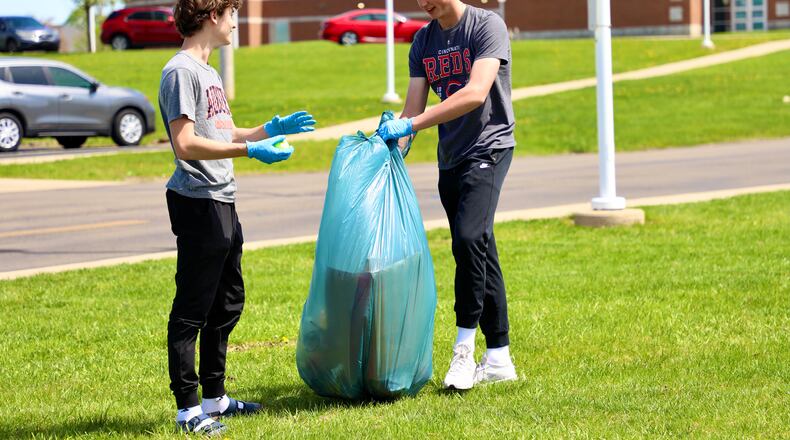Even more, cleanup efforts unite us. Events, recycling programs, and education initiatives give everyone — especially young people — a chance to take part and see that change starts with action.
Let’s take pride in our city and take responsibility for our shared spaces. Whether it’s picking up litter, organizing a cleanup, or encouraging others to care, every small act makes a big difference. Dayton deserves to shine—and it starts with us.
-Fletcher Davies, Dayton
A principal aim of the law is upholding the infinite dignity of those needing the most support in society, especially families caring for the youngest in our state. For this reason, we, the Catholic bishops of Ohio, have long advocated for the creation of a refundable child tax credit. Child tax credits are a hallmark of pro-family public policy, as reflected in their broad, bipartisan support at the federal level. We are encouraged by the child tax credit proposal in the Executive Budget. This refundable $1,000 per child credit would give evidence that our society welcomes and cherishes new life while helping families meet their unique needs in a flexible manner. The credit does not solve all of the difficulties of the increasing costs of raising children. Still, it is a critical step in allocating the state’s resources to address a family’s needs.
As the General Assembly continues deliberation on the operating budget, we urge lawmakers to restore the child tax credit. Prioritizing young children and their families recognizes the dignity of life and helps expectant parents to trust that their child will be born into a life-affirming culture. The child tax credit is sound economic policy, an incomparable tool for raising children out of poverty. It is also sound moral policy, fulfilling our shared responsibility to children and families who must come first in policymaking. We urge the Ohio Senate to craft a budget that more clearly reflects a civilization of love by prioritizing a refundable child tax credit.
- The Catholic Bishops of Ohio
In 1998, Ohio’s school funding system was ruled unconstitutional for relying too heavily on property taxes. Our communities are stuck passing endless school levies just for schools to survive, putting a huge strain on homeowners. In my hometown of Germantown, I’ve seen firsthand how this cycle of levies divides good neighbors. People want to support our schools — but the burden is getting too heavy. The Fair School Funding Plan, a bipartisan bill passed in 2021, was designed to fix this — a systemic solution to ensure every district gets enough support from the state based on real needs, not just local wealth. It means stable schools, fair taxes, and stronger communities. Yet the Ohio House just passed a budget that does not fully fund Fair School Funding. Meanwhile, over $400 million is being spent on private school vouchers — even for families making up to $135,000 a year. Now the Senate is writing its version of the budget. The Senate Finance Committee can revise it before the full Senate votes. This is our moment to act. Contact your state senator and the Ohio Senate Finance Committee. Tell them to protect taxpayers and our public schools by fully fund the Fair School Funding Plan. Let’s protect our schools — and our community — for the next generation.
- Anna Studer, Germantown
Credit: JIM NOELKER
Credit: JIM NOELKER
Interested in submitting a letter to the editor? Email your submission to edletter@coxinc.com.
What makes a good Letter to the Editor?
Our Letters to the Editor are generally collected and published once a week, based on the volume and quality of submissions we receive. Letters to the Editor are short, focused submissions that quickly address a single topic. They can run up to 250 words in length.
Letters to the Editor can respond to specific issues in stories we’ve reported, other contributed columns or syndicated columnists. They’re a quick and easy way to add your perspective to the discussion of any topic.
Learn more about how to get involved with our Ideas & Voices section.

